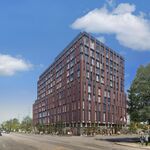unimaginative2
Senior Member
Shooting incidents on the decline this year
Despite rash of recent slayings, police say gun-violence numbers are significantly down from last year
TIMOTHY APPLEBY
With a report from Tim Shufelt
August 1, 2007
Outside the Old City Hall courthouse where he is to testify against several young men charged in the shooting death of teenager Jane Creba on Yonge Street 19 months ago, prosecution witness Richard Steele offered this glimpse of his uncertain future:
"It's a scary thing," he told reporters on Monday. "You don't know who's going to come out these days shooting people."
In the face of a homicide tally that looks to be soaring, plenty of other Torontonians feel the same way. Statistics as of Monday morning list 47 homicides this year, 24 of them gun killings, which does not include a shooting incident that killed a 27-year-old man Monday night. Particularly alarming was the rash of weekend slayings 10 days ago, when three people were killed in less than two hours, including 11-year-old Ephraim Brown.
This, despite a record $785-million police budget that, since the Creba killing, has helped put 450 extra police officers on the street and paid for a highly publicized series of anti-gang sweeps, netting dozens of gunmen and drug dealers.
So why are the gun-crime numbers up?
The surprising answer is that, for the most part, they are not.
If the pattern of homicides so far this year stays on track, there is small doubt the total will surpass that of 2005, dubbed the "year of the gun," when 80 people in the city were killed, 52 of them with firearms. (The record-setting year for homicides was 1991, when 88 people were killed, but fewer of them with guns).
Yet the number of shootings is significantly down, according to police.
As of July 30, the city had recorded 110 shooting incidents this year, involving 132 people being killed or wounded. That compares with 142 incidents and 205 victims in the same seven months last year. In 2005, the totals were higher still - 164 shootings, 230 people shot.
Nor is murder an equal-opportunity business. Toronto's homicide squad estimates that up to two-thirds of the city's killings can loosely be described as gang-related.
As in most big cities, random, stranger-on-stranger killings remain extremely unusual.
"If you look at who the victims of gun violence are, the majority are making choices or are involved in behaviour - they're involved in drugs or they're gang members - that makes them more likely to become victims," Police Chief Bill Blair said.
Toronto's gun violence, in other words, is inextricably linked to the 70-plus street gangs identified by police.
Jamaican-Canadian lawyer Courtney Betty, who is representing the family of slain teen Jordan Manners, points out that much of the city's gun activity flows from public-housing projects, some of whose residents - Malvern, in the city's east end, for instance - are predominantly Caribbean.
Stressing the need for increased and better community policing, Mr. Betty also emphasizes the underlying poverty and social woes that have long troubled low-income communities and can act as a magnet for gang recruitment.
"We've got to look at the preventative measures to somehow get to these young people's minds before they've made that decision to pick up a gun."
Like Chief Blair, he cautions against reading too much in to the latest spasm of shootings, suggesting it may be a statistical blip. Yet Mr. Betty acknowledges a troubling and growing willingness by gun-toting criminals to fight their battles in public.
And when they do, it is often with a new viciousness.
Asked why the year's homicide tally is so prematurely high, even as other gun crimes decline and the quality of emergency medical care improves, Chief Blair offers a disturbing explanation.
"Quite a number of them have been executions," he said.
"Not an angry flash of gunfire where everybody then runs away ... instead, they're actually going up and finishing the guy off."
Another killer year
If this year's pattern of homicides stays on track, the total will likely surpass that of 2005, the notorious "year of the gun," when 52 people were killed by firearms in the city. But police say the number of shootings is going down.
TOTAL ANNUAL HOMICIDES AND GUN HOMICIDES
Total homicides Gun homicides
'00 61 25
'01 59 25
'02 62 26
'03 67 34
'04 64 27
'05 80 52
'06 69 29
'07** 47 24
SHOOTINGS* IN PERIOD OF JAN. 1 - JULY 30
Shootings Gun homicides
2005 164 23
2006 142 20
2006 110 24
*Instances where victims were either shot, shot at, or endangered by the discharge of a firearm. **To July 30.
SOURCE: TORONTO POLICE SERVICE
Despite rash of recent slayings, police say gun-violence numbers are significantly down from last year
TIMOTHY APPLEBY
With a report from Tim Shufelt
August 1, 2007
Outside the Old City Hall courthouse where he is to testify against several young men charged in the shooting death of teenager Jane Creba on Yonge Street 19 months ago, prosecution witness Richard Steele offered this glimpse of his uncertain future:
"It's a scary thing," he told reporters on Monday. "You don't know who's going to come out these days shooting people."
In the face of a homicide tally that looks to be soaring, plenty of other Torontonians feel the same way. Statistics as of Monday morning list 47 homicides this year, 24 of them gun killings, which does not include a shooting incident that killed a 27-year-old man Monday night. Particularly alarming was the rash of weekend slayings 10 days ago, when three people were killed in less than two hours, including 11-year-old Ephraim Brown.
This, despite a record $785-million police budget that, since the Creba killing, has helped put 450 extra police officers on the street and paid for a highly publicized series of anti-gang sweeps, netting dozens of gunmen and drug dealers.
So why are the gun-crime numbers up?
The surprising answer is that, for the most part, they are not.
If the pattern of homicides so far this year stays on track, there is small doubt the total will surpass that of 2005, dubbed the "year of the gun," when 80 people in the city were killed, 52 of them with firearms. (The record-setting year for homicides was 1991, when 88 people were killed, but fewer of them with guns).
Yet the number of shootings is significantly down, according to police.
As of July 30, the city had recorded 110 shooting incidents this year, involving 132 people being killed or wounded. That compares with 142 incidents and 205 victims in the same seven months last year. In 2005, the totals were higher still - 164 shootings, 230 people shot.
Nor is murder an equal-opportunity business. Toronto's homicide squad estimates that up to two-thirds of the city's killings can loosely be described as gang-related.
As in most big cities, random, stranger-on-stranger killings remain extremely unusual.
"If you look at who the victims of gun violence are, the majority are making choices or are involved in behaviour - they're involved in drugs or they're gang members - that makes them more likely to become victims," Police Chief Bill Blair said.
Toronto's gun violence, in other words, is inextricably linked to the 70-plus street gangs identified by police.
Jamaican-Canadian lawyer Courtney Betty, who is representing the family of slain teen Jordan Manners, points out that much of the city's gun activity flows from public-housing projects, some of whose residents - Malvern, in the city's east end, for instance - are predominantly Caribbean.
Stressing the need for increased and better community policing, Mr. Betty also emphasizes the underlying poverty and social woes that have long troubled low-income communities and can act as a magnet for gang recruitment.
"We've got to look at the preventative measures to somehow get to these young people's minds before they've made that decision to pick up a gun."
Like Chief Blair, he cautions against reading too much in to the latest spasm of shootings, suggesting it may be a statistical blip. Yet Mr. Betty acknowledges a troubling and growing willingness by gun-toting criminals to fight their battles in public.
And when they do, it is often with a new viciousness.
Asked why the year's homicide tally is so prematurely high, even as other gun crimes decline and the quality of emergency medical care improves, Chief Blair offers a disturbing explanation.
"Quite a number of them have been executions," he said.
"Not an angry flash of gunfire where everybody then runs away ... instead, they're actually going up and finishing the guy off."
Another killer year
If this year's pattern of homicides stays on track, the total will likely surpass that of 2005, the notorious "year of the gun," when 52 people were killed by firearms in the city. But police say the number of shootings is going down.
TOTAL ANNUAL HOMICIDES AND GUN HOMICIDES
Total homicides Gun homicides
'00 61 25
'01 59 25
'02 62 26
'03 67 34
'04 64 27
'05 80 52
'06 69 29
'07** 47 24
SHOOTINGS* IN PERIOD OF JAN. 1 - JULY 30
Shootings Gun homicides
2005 164 23
2006 142 20
2006 110 24
*Instances where victims were either shot, shot at, or endangered by the discharge of a firearm. **To July 30.
SOURCE: TORONTO POLICE SERVICE




